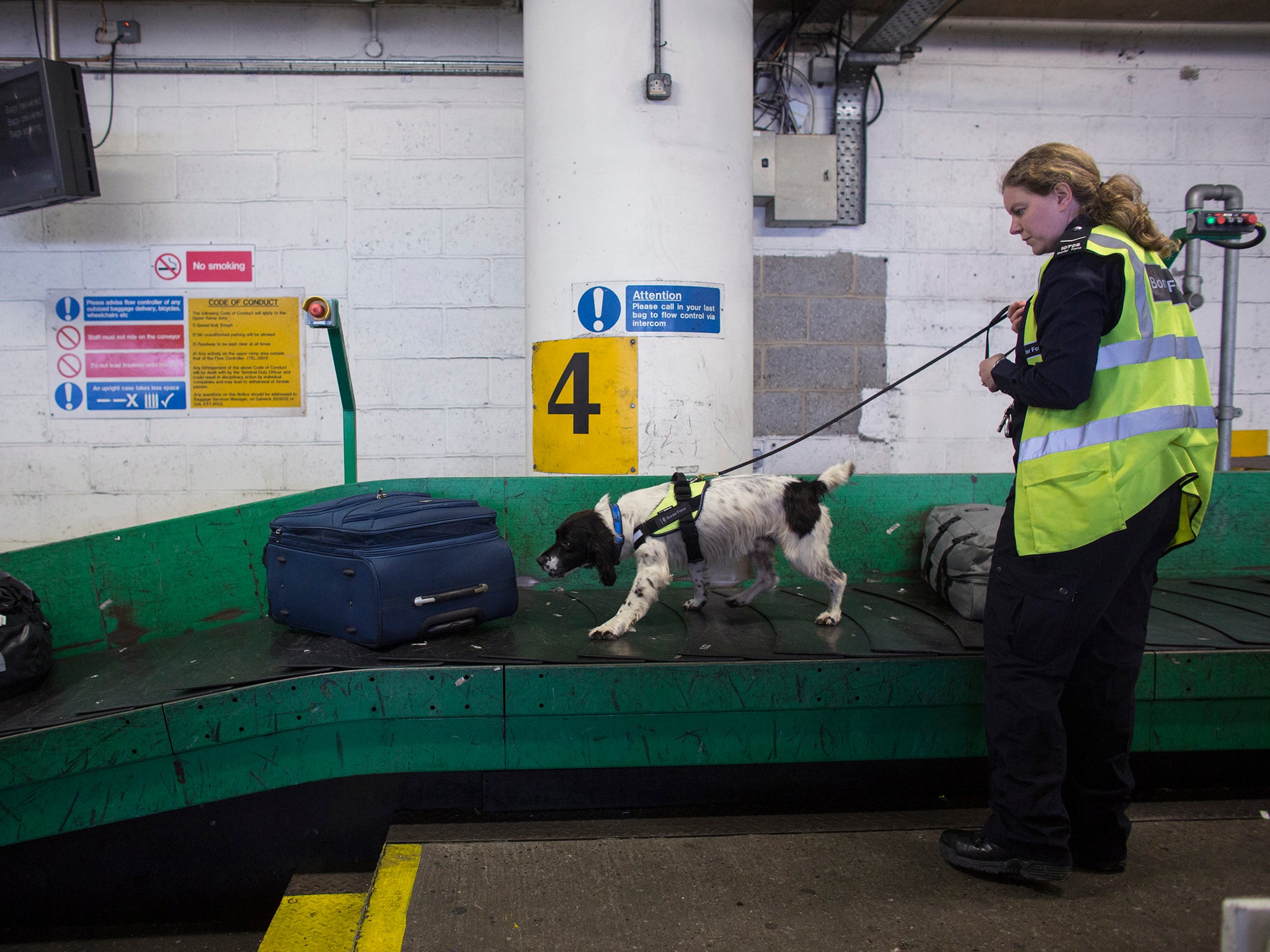Life as a drug mule: 'I was just scared...they knew where I lived'
London Live spoke to one woman serving a 13-year sentence

Your support helps us to tell the story
From reproductive rights to climate change to Big Tech, The Independent is on the ground when the story is developing. Whether it's investigating the financials of Elon Musk's pro-Trump PAC or producing our latest documentary, 'The A Word', which shines a light on the American women fighting for reproductive rights, we know how important it is to parse out the facts from the messaging.
At such a critical moment in US history, we need reporters on the ground. Your donation allows us to keep sending journalists to speak to both sides of the story.
The Independent is trusted by Americans across the entire political spectrum. And unlike many other quality news outlets, we choose not to lock Americans out of our reporting and analysis with paywalls. We believe quality journalism should be available to everyone, paid for by those who can afford it.
Your support makes all the difference.As researchers in London argue that nearly a quarter of new cases of psychosis are linked to high-potency "skunk like" cannabis - at a time when a growing number are calling for marijuana to be legalised - it is worth remembering the large number of drug seizures by police every year, and the huge, illegal narcotics industry that can ruin the lives of many unsuspecting people.
In 2013/14, there were 192,294 drug seizures made in England and Wales by the police and Border Force, according to statistics from the Home Office. The number of drug seizures more than doubled between 2004 and 2008/09, to a peak of 241,473 seizures.
While drug seizures may have come down from a peak in 2009, there is still a rising number of women being targeted to get drugs to the market. The Prison Reform Trust (PRT) says that 15 percent of women in jail are there for drug-related offences.
One particular area of interest for PRT is the case of drug mules, with the group long arguing for more moderate treatment of drug couriers, mainly because many are the victims of trafficking or coercion.
London Live spoke to one woman who explained how she was set up by men who used her to unwittingly import class A drugs into the UK - resulting in a 13-year prison sentence. She is still in prison.
She said that after a holiday with a friend in Saint Lucia in the Caribbean, two men arrived at the hotel to take the pair to the airport.
"I've gone into the other room and one of the guys called me back and said that I had a rip in my suitcase and that I wouldn't be able to take it on the plane. So he's gone off and he's come back 20 minutes later with a brand new suitcase," she told London Live, explaining how the drugs were transferred into her case.
"Next thing you know I was landing back at the airport in England. I got to Customs and they told us they were doing a random stop and search. So I was like, okay. They separated us, searched both our bags, came back and told me they were X-raying my bag.
"The next thing you know, I'm being arrested, for knowingly importing a class A drug."
The woman stood trial for three days, was found guilty and handed a 13-year sentence. She has spent time at HM Prison Holloway, used to house adult women and young offenders, as well as other prisons in and around London. She said she has met many other women in prison with stories similar to her own.
"They got set up, they didn't know about it and ended up in prison with a big sentence," she explained. "I've lost the career that I've wanted to do...lost out on some of the best years of my life. I mean all my friends, they're all married, kids, stuff like that. I've just got prison."
When asked whether she was suspicious about having her suitcase replaced by the men in Saint Lucia, she said she was just scared and wanted to go home.
"You know, when you've kind of been in that situation, you can see what these people are about. And they knew where I lived. They knew a lot of stuff about me. If anything, I was just more scared to say anything than anything else."
There have been many notable cases of female drug mules in recent years. In January, Andrea Waldeck, a 43-year-old British woman from Gloucestershire, was found guilty of smuggling crystal methamphetamine into Indonesia and sentenced to 14 years in prison.
She had faced a possible death sentence after being arrested in April 2013. She told a court in Surabaya, Indonesia, that she had been forced into carrying the drugs from China.
In 2013, a pair of girls from Northern Ireland, Melissa Reid, 21, and Michaella McCollum, 20, were jailed for nearly seven years in Peru after being caught with £1.5m of cocaine.
Reid's father is now helping a campaign to stop young people becoming drug mules.
Join our commenting forum
Join thought-provoking conversations, follow other Independent readers and see their replies
Comments